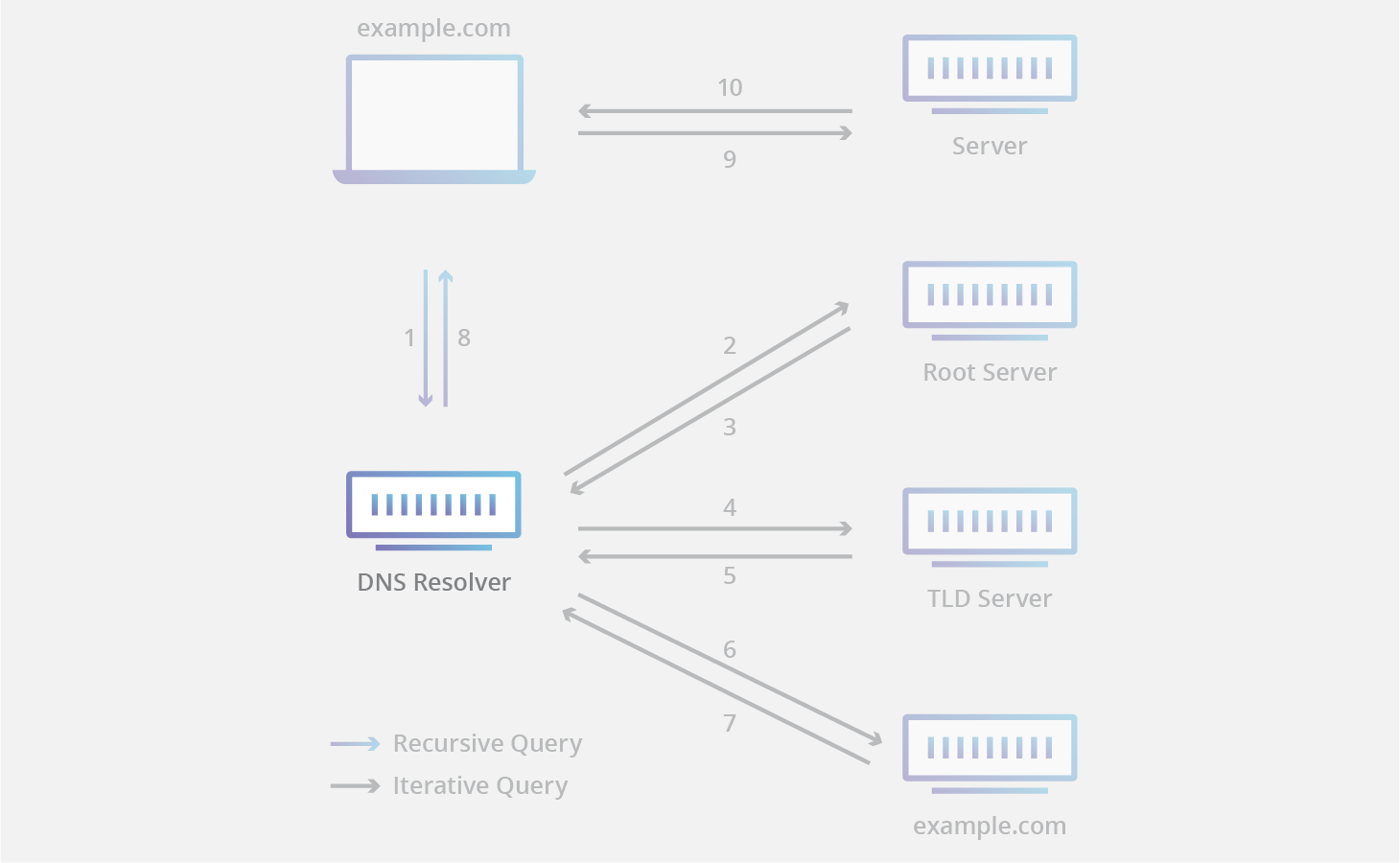
An example of the way DNS works. Image by CloudFlare
DNS, or Domain Name System, is a domain translation services maintained by ICANN. It translates your domains into their respective IPs, as computers cannot understand/do not know how to use domains. The DNS system is made up of 4 different types of servers, which we will explore below.
DNS can affect your server by taking its time to grab and publish your domain’s DNS records. In some situations, it may take your host provider’s or ISP’s DNS server up to 2 hours to grab the users IP. In the event of your domain being hosted by a newer web host, the site’s Authoritative DNS server may not be well known, resulting in slower resolution times.
The different types of DNS Server
As mentioned above, there are 4 different types of DNS server. The DNS Recursor, the Root DNS Server, the TLD Server, and the Authoritative DNS server. ICANN operates 13 of the root servers. In the event that those were to go down, or were to be shut down by ICANN, most domains would cease working. This video is a good video resource about this very thing.
DNS Recursor
This type of DNS server can be run by your ISP, or by your router if it is configured to act as a recursor. Normally, it passes on its requests to the root dns server, but if it has the domain’s IP saved already, it will serve that. This is why you may notice that a domain still points at 1 IP until you refresh your cache.
Root DNS Servers
These 13 servers are owned by ICANN, and they are known by every single Recursor. They forward your DNS request to the domains TLD DNS Server. While there are technically over 600 root DNS servers, they are replicas of the original 13. They can be owned and operated by any company.
TLD DNS Servers
This type of DNS server is owned by the operator of your domain’s TLD (For example, com and net are TLDs). These servers also forward your DNS request to your domain’s Authoritative DNS server. These servers are managed by IANA, instead of ICANN.
Authoritative DNS Server
This is the DNS server that is run by your hosting provider. When you point your nameservers at the ones provided to you by Oddblox, it allows Oddblox to serve your DNS records, and is consider your domain’s Authoritative DNS server. When you use Cloudflare, they become your domain’s Authoritative DNS server. This type of DNS server is the last stop on the chain.
—
Additional Documentation
Please see the below for additional information regarding DNS.
CloudFlare’s Article
Varonis’s Article
AWS’s Article